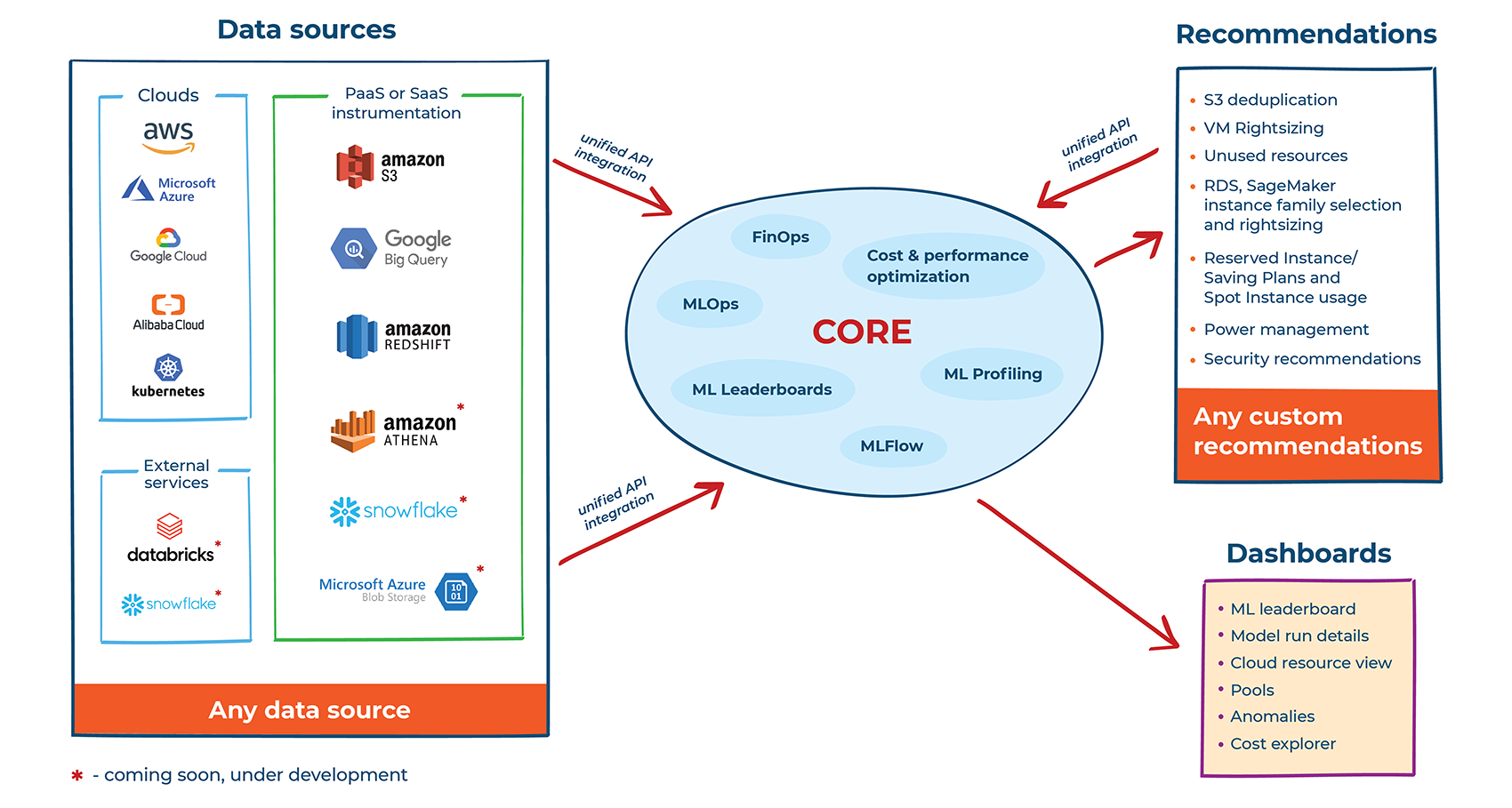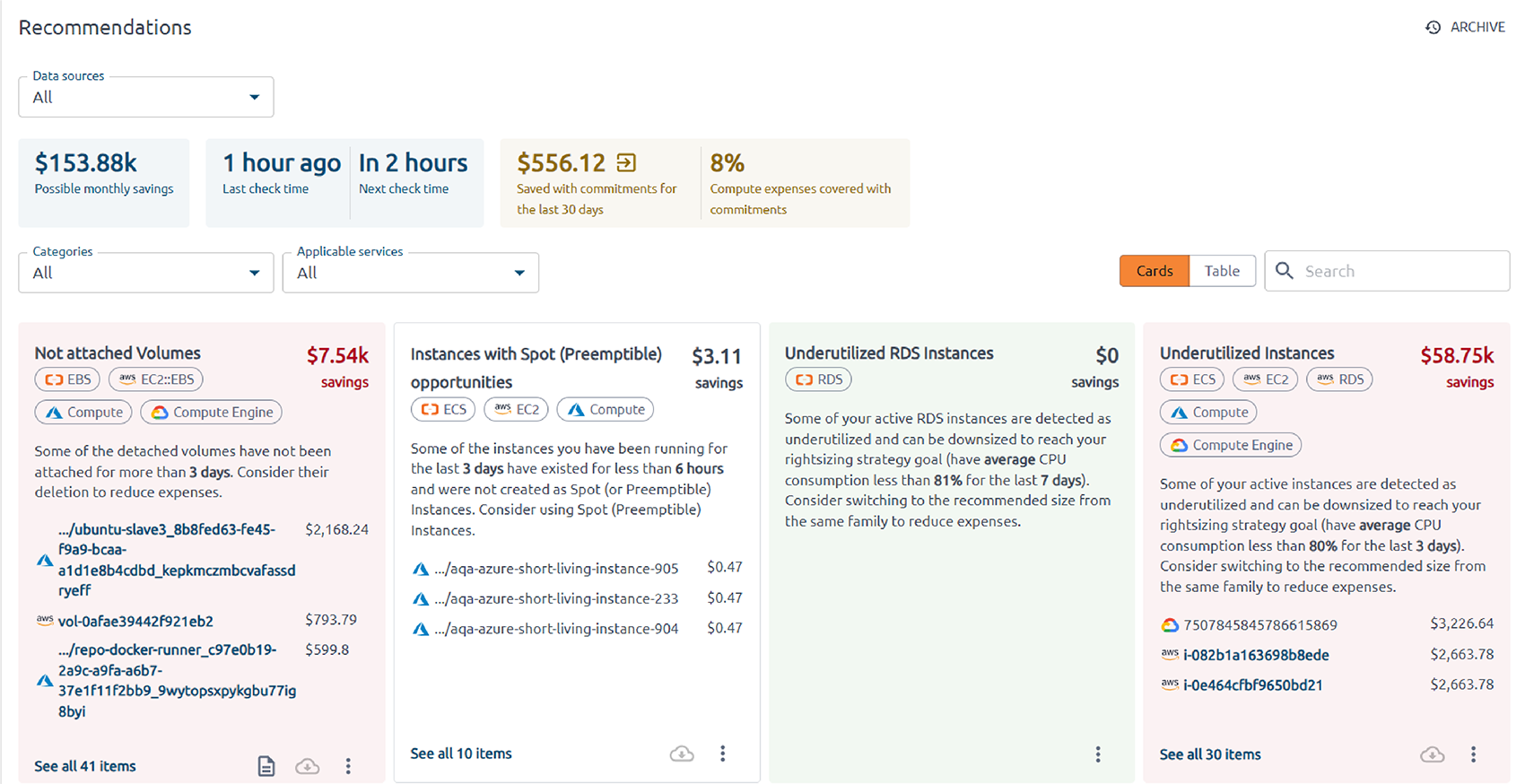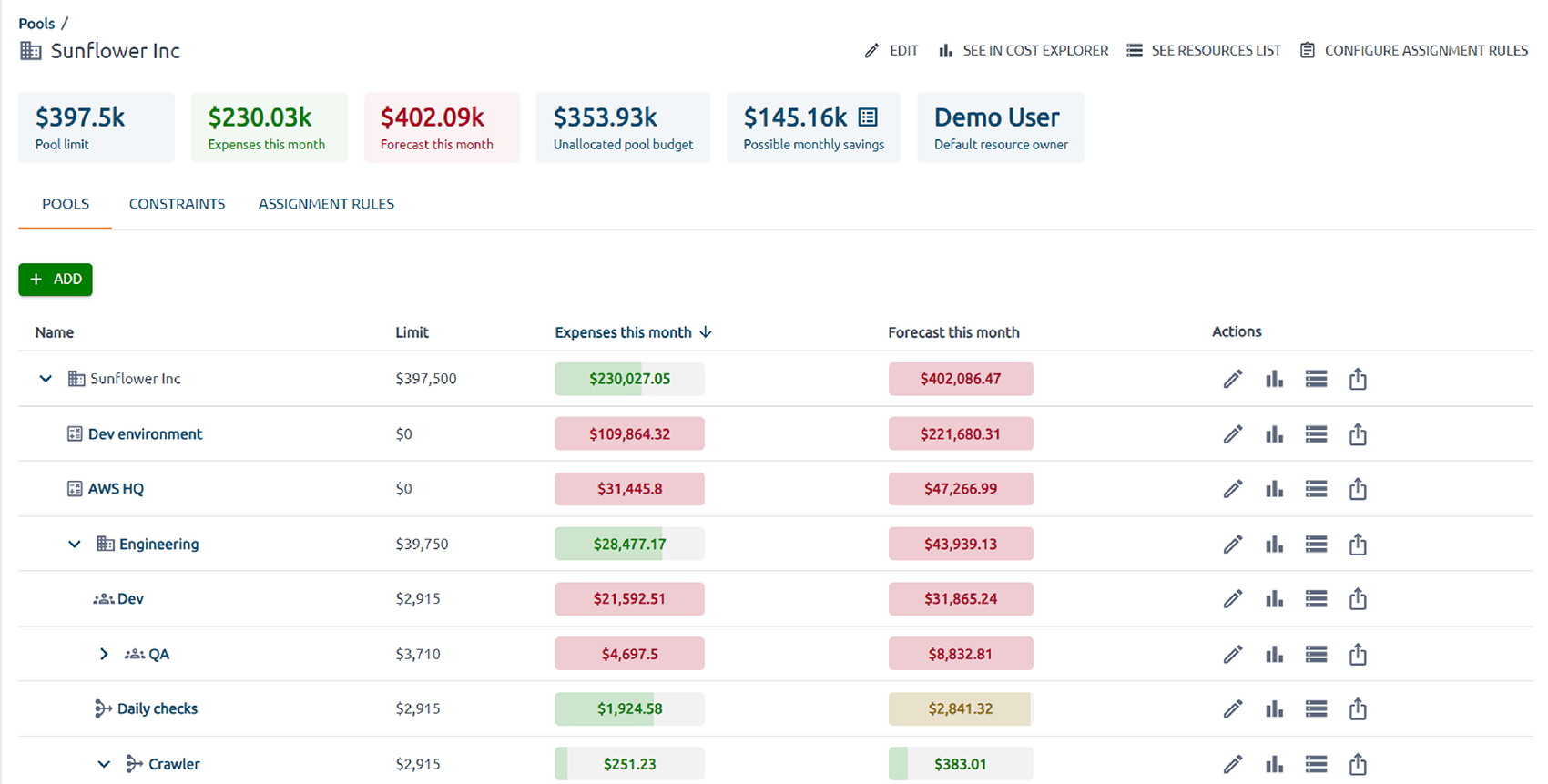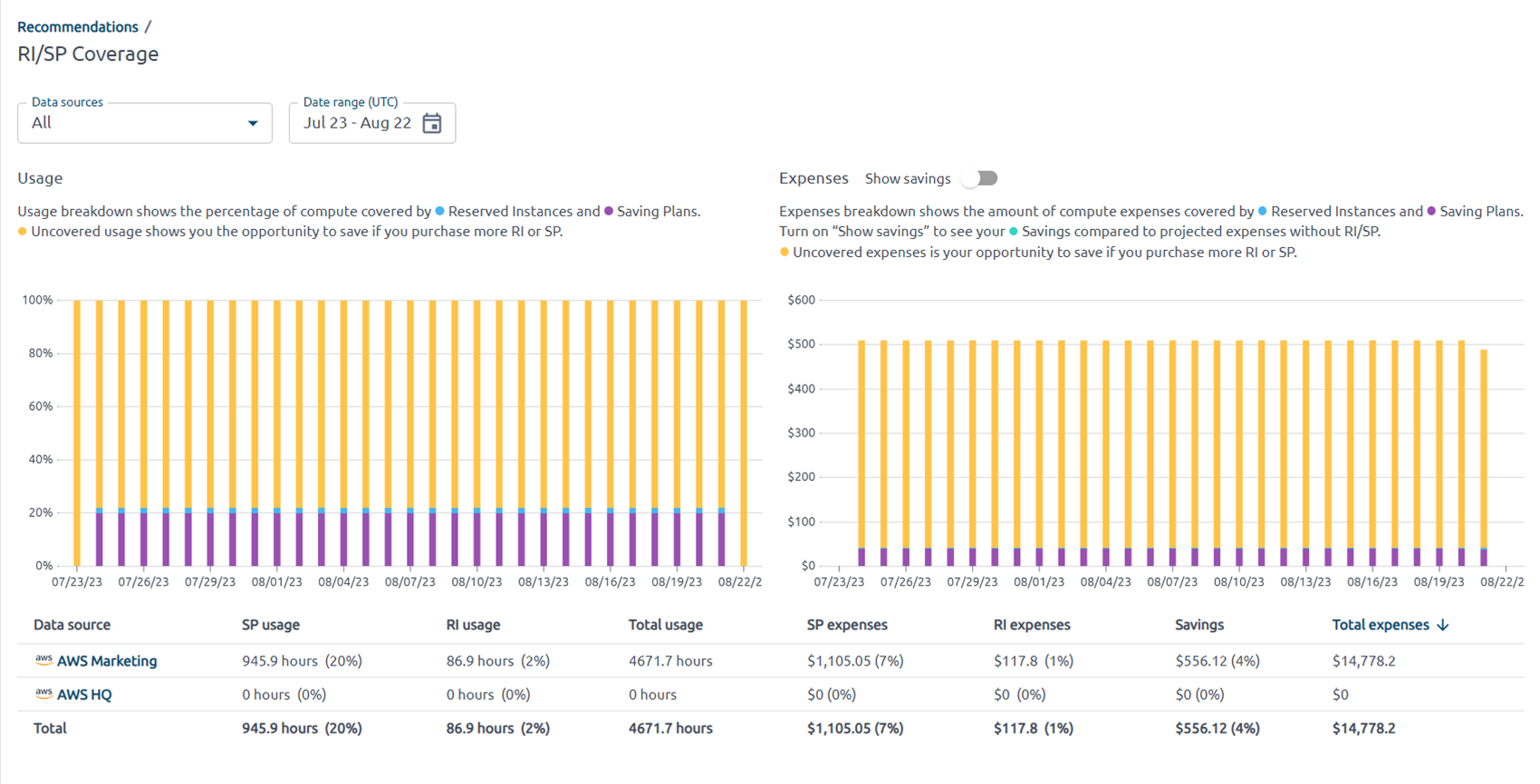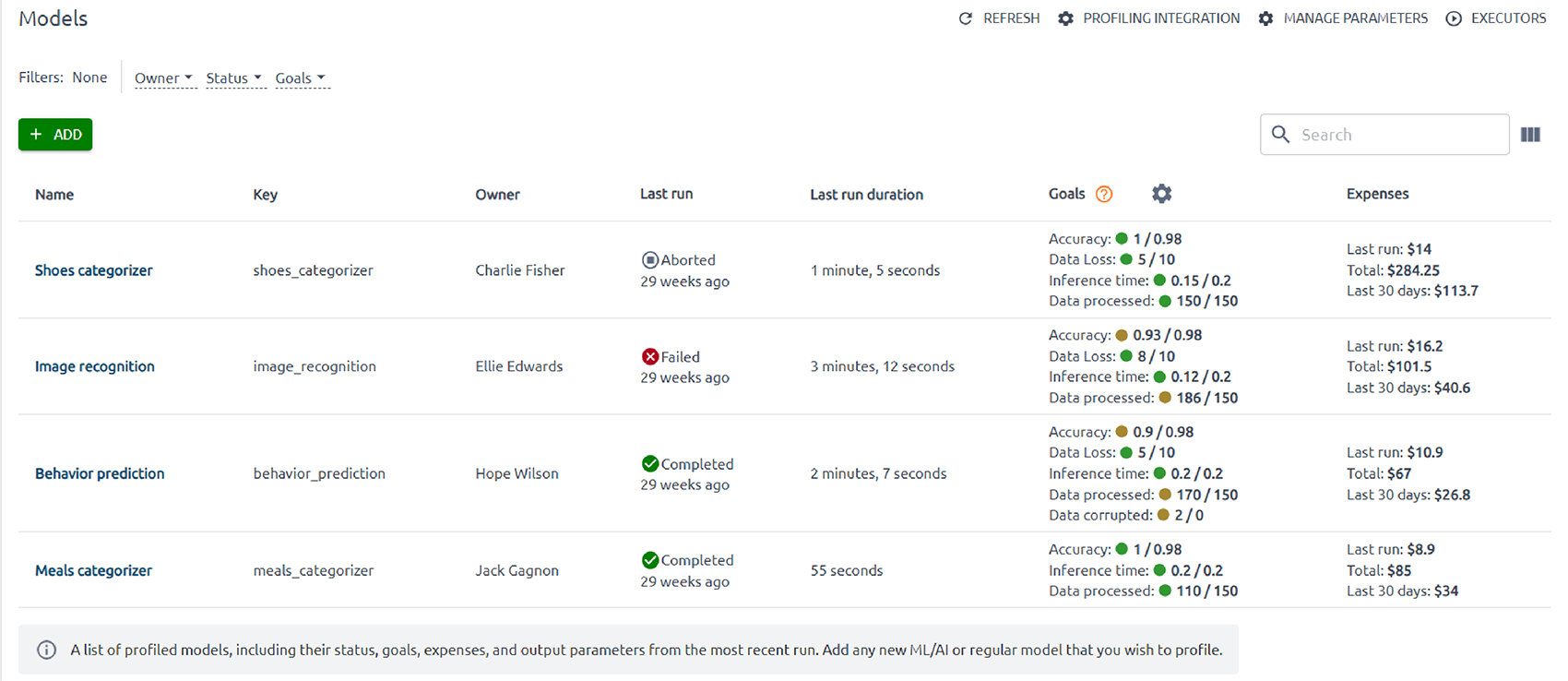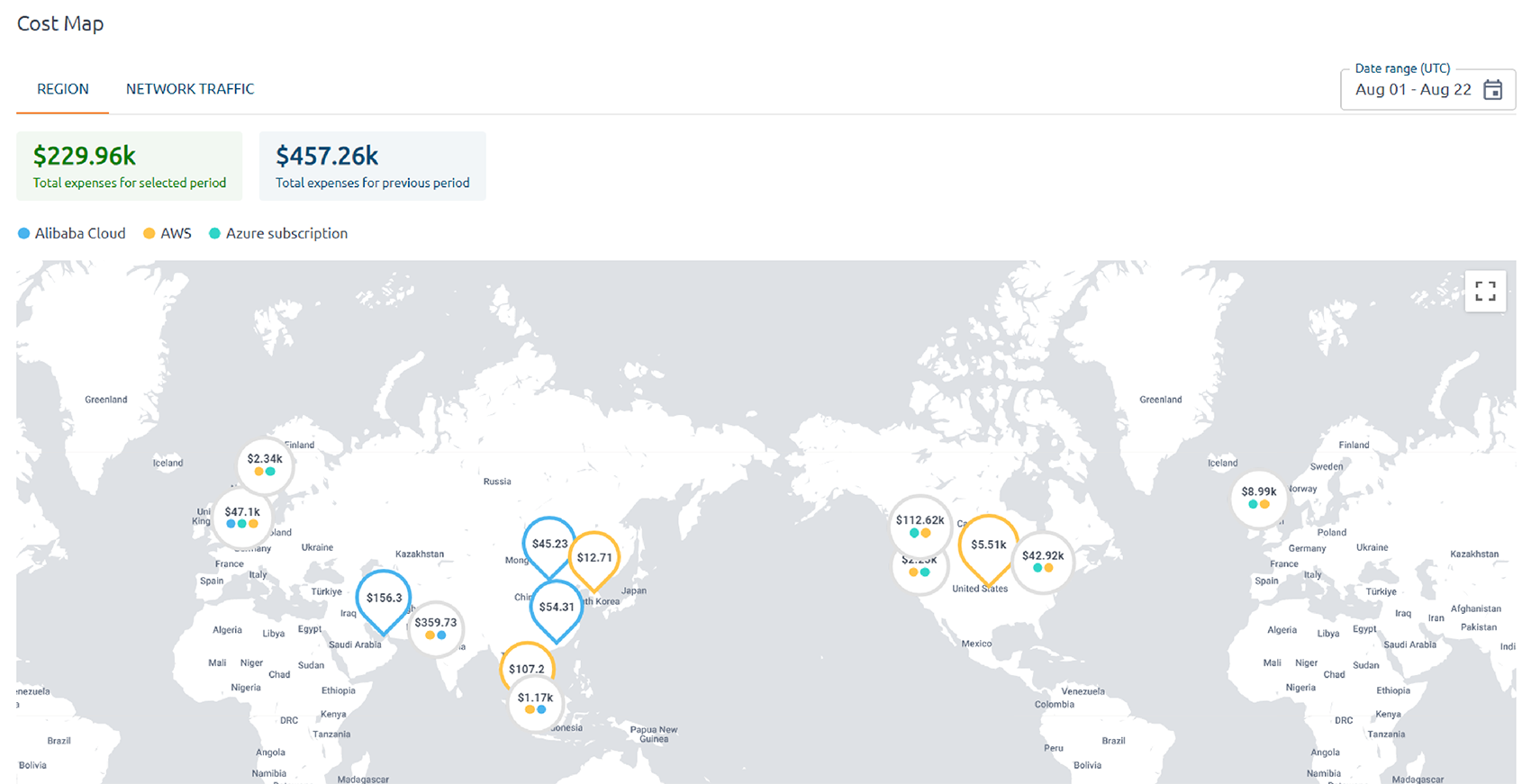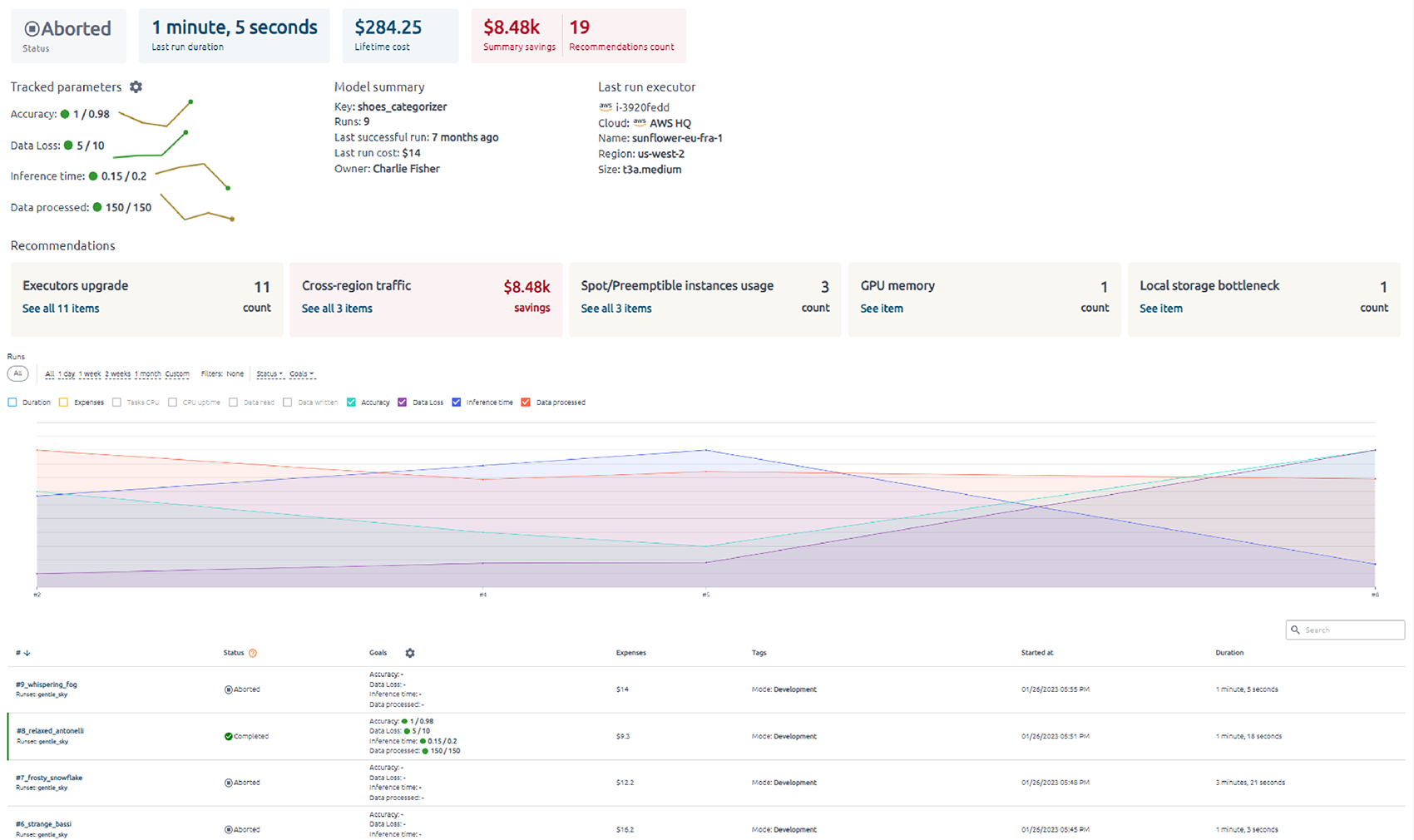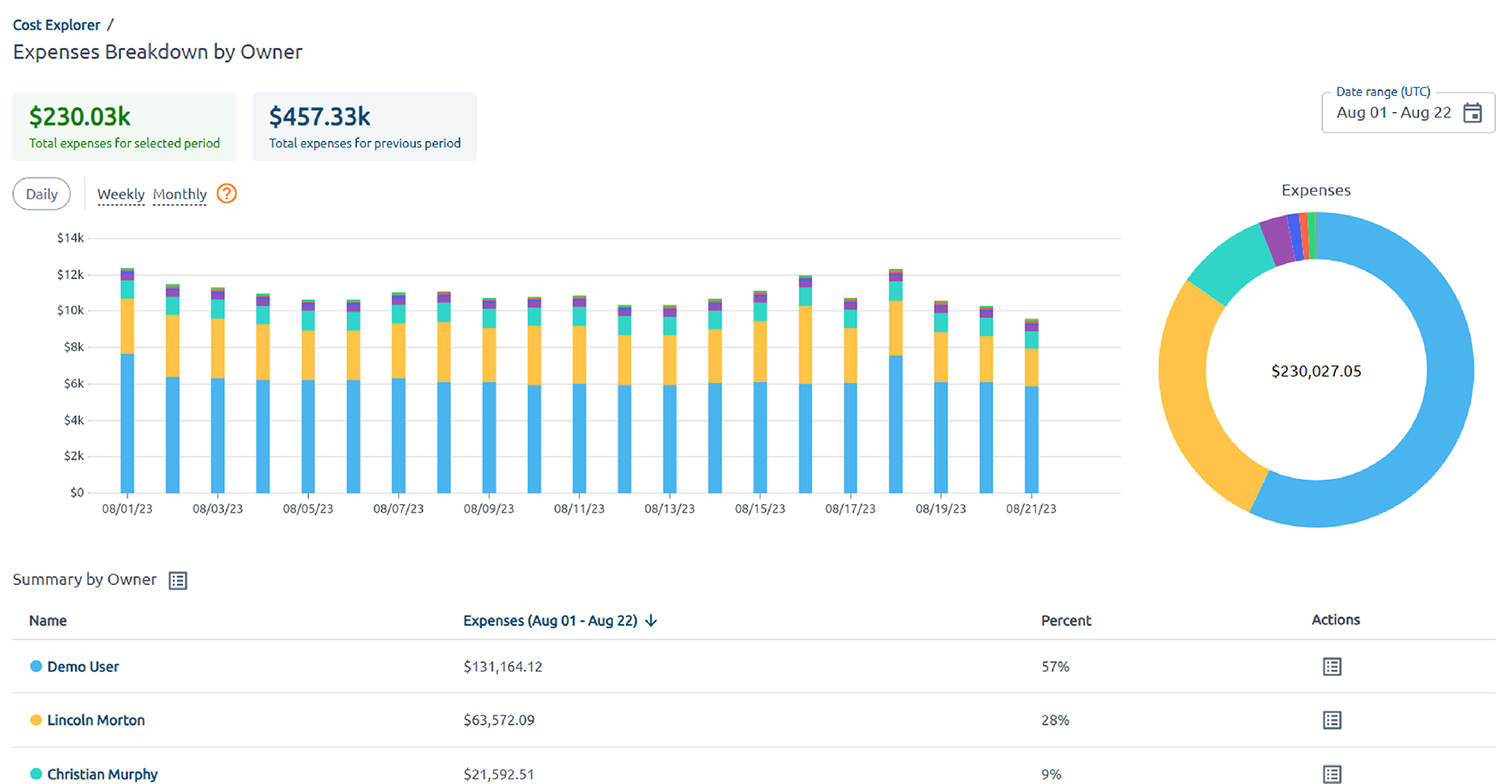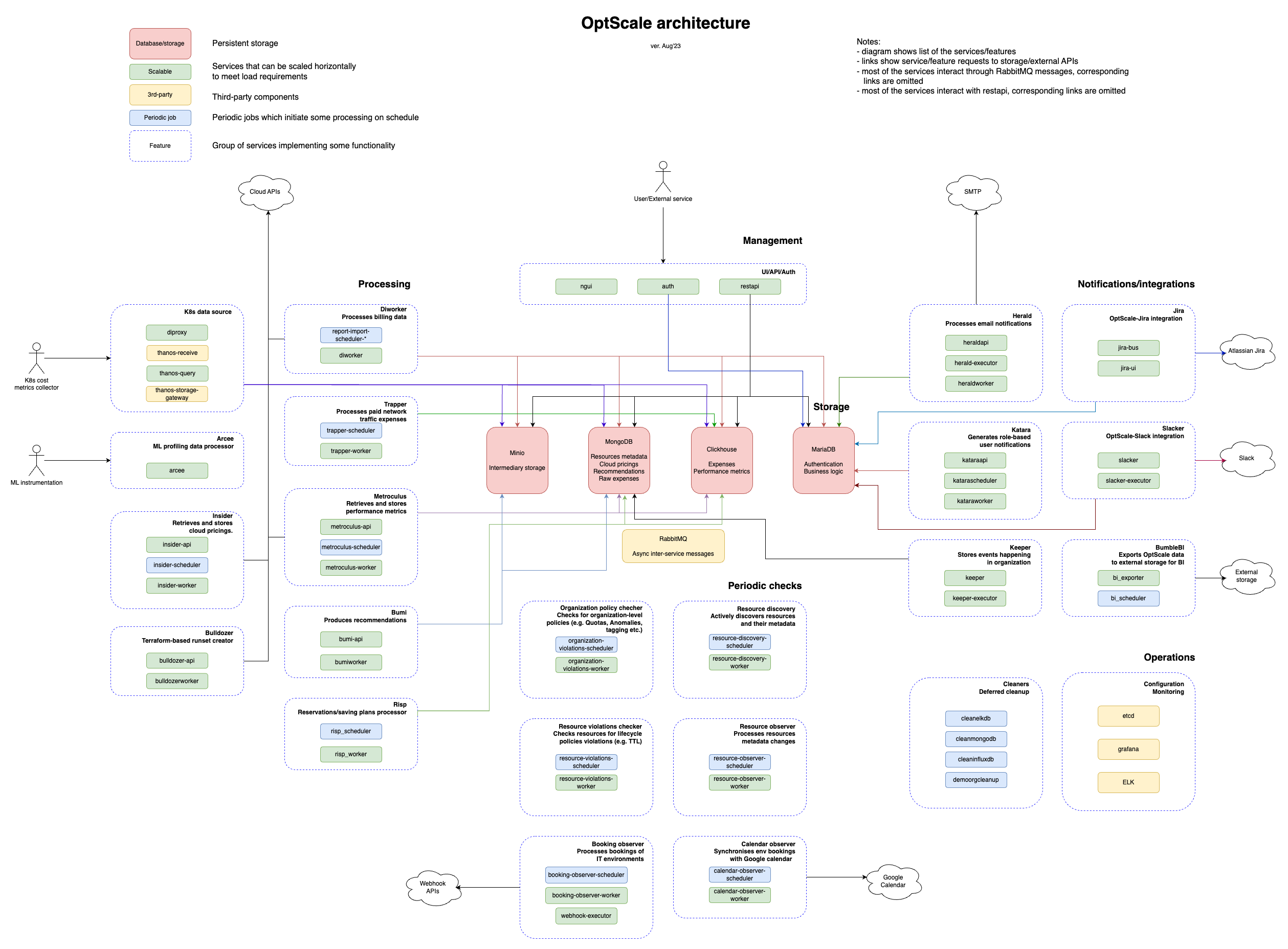| FinOps & cloud cost management | MLOps |
|---|---|
|
|
You can check OptScale live demo to explore product features on a pre-generated demo organization.
Learn more about the Hystax OptScale platform and its capabilities at our website.
Minimum hardware requirements for OptScale cluster: CPU: 8+ cores, RAM: 16Gb, SSD: 150+ Gb.
NVMe SSD is recommended.
OS Required: Ubuntu 20.04.
The current installation process does not work on Ubuntu 22.04
Run the following commands:
sudo apt update ; sudo apt install git python3-venv python3-dev sshpass
Clone the repository
git clone https://github.com/hystax/optscale.gitChange current directory:
cd optscale/optscale-deploy
Run the following commands:
python3 -m venv .venv
source .venv/bin/activate
pip install -r requirements.txt
Run the following command: comma after ip address is required
ansible-playbook -e "ansible_ssh_user=<user>" -k -K -i "<ip address>," ansible/k8s-master.yaml
where - actual username; - host ip address, ip address should be private address of the machine, you can check it with
ip a
If your deployment server is the service-host server, add "ansible_connection=local" to the ansible command.
Edit file with overlay - optscale-deploy/overlay/user_template.yml, see comments in overlay file for guidance.
run the following command:
./runkube.py --with-elk -o overlay/user_template.yml -- <deployment name> component_versions.yaml
or if you want to use socket:
./runkube.py --use-socket --with-elk -o overlay/user_template.yml -- <deployment name> component_versions.yaml
deployment name must follow the RFC 1123 : https://kubernetes.io/docs/concepts/overview/working-with-objects/names/
please note: if you use key authentication, you should have required key (id_rsa) on the machine
Run the following command:
./runkube.py --with-elk --update-only -- <deployment name> component_versions.yaml
kubectl get services --field-selector metadata.name=ngingress-nginx-ingress-controllerIn case of the following error:
fatal: [172.22.24.157]: FAILED! => {"changed": true, "cmd": "kubeadm init --config /tmp/kubeadm-init.conf --upload-certs > kube_init.log", "delta": "0:00:00.936514", "end": "2022-11-30 09:42:18.304928", "msg": "non-zero return code", "rc": 1, "start": "2022-11-30 09:42:17.368414", "stderr": "W1130 09:42:17.461362 334184 validation.go:28] Cannot validate kube-proxy config - no validator is available\nW1130 09:42:17.461709 334184 validation.go:28] Cannot validate kubelet config - no validator is available\n\t[WARNING IsDockerSystemdCheck]: detected \"cgroupfs\" as the Docker cgroup driver. The recommended driver is \"systemd\". Please follow the guide at https://kubernetes.io/docs/setup/cri/\nerror execution phase preflight: [preflight] Some fatal errors occurred:\n\t[ERROR Port-6443]: Port 6443 is in use\n\t[ERROR Port-10259]: Port 10259 is in use\n\t[ERROR Port-10257]: Port 10257 is in use\n\t[ERROR FileAvailable--etc-kubernetes-manifests-kube-apiserver.yaml]: /etc/kubernetes/manifests/kube-apiserver.yaml already exists\n\t[ERROR FileAvailable--etc-kubernetes-manifests-kube-controller-manager.yaml]: /etc/kubernetes/manifests/kube-controller-manager.yaml already exists\n\t[ERROR FileAvailable--etc-kubernetes-manifests-kube-scheduler.yaml]: /etc/kubernetes/manifests/kube-scheduler.yaml already exists\n\t[ERROR FileAvailable--etc-kubernetes-manifests-etcd.yaml]: /etc/kubernetes/manifests/etcd.yaml already exists\n\t[ERROR Port-10250]: Port 10250 is in use\n\t[ERROR Port-2379]: Port 2379 is in use\n\t[ERROR Port-2380]: Port 2380 is in use\n\t[ERROR DirAvailable--var-lib-etcd]: /var/lib/etcd is not empty\n[preflight] If you know what you are doing, you can make a check non-fatal with `--ignore-preflight-errors=...`\nTo see the stack trace of this error execute with --v=5 or higher", "stderr_lines": ["W1130 09:42:17.461362 334184 validation.go:28] Cannot validate kube-proxy config - no validator is available", "W1130 09:42:17.461709 334184 validation.go:28] Cannot validate kubelet config - no validator is available", "\t[WARNING IsDockerSystemdCheck]: detected \"cgroupfs\" as the Docker cgroup driver. The recommended driver is \"systemd\". Please follow the guide at https://kubernetes.io/docs/setup/cri/", "error execution phase preflight: [preflight] Some fatal errors occurred:", "\t[ERROR Port-6443]: Port 6443 is in use", "\t[ERROR Port-10259]: Port 10259 is in use", "\t[ERROR Port-10257]: Port 10257 is in use", "\t[ERROR FileAvailable--etc-kubernetes-manifests-kube-apiserver.yaml]: /etc/kubernetes/manifests/kube-apiserver.yaml already exists", "\t[ERROR FileAvailable--etc-kubernetes-manifests-kube-controller-manager.yaml]: /etc/kubernetes/manifests/kube-controller-manager.yaml already exists", "\t[ERROR FileAvailable--etc-kubernetes-manifests-kube-scheduler.yaml]: /etc/kubernetes/manifests/kube-scheduler.yaml already exists", "\t[ERROR FileAvailable--etc-kubernetes-manifests-etcd.yaml]: /etc/kubernetes/manifests/etcd.yaml already exists", "\t[ERROR Port-10250]: Port 10250 is in use", "\t[ERROR Port-2379]: Port 2379 is in use", "\t[ERROR Port-2380]: Port 2380 is in use", "\t[ERROR DirAvailable--var-lib-etcd]: /var/lib/etcd is not empty", "[preflight] If you know what you are doing, you can make a check non-fatal with `--ignore-preflight-errors=...`", "To see the stack trace of this error execute with --v=5 or higher"], "stdout": "", "stdout_lines": []}
run the following command to reset k8s and retry the installation command:
sudo kubeadm reset -f
ansible-playbook -e "ansible_ssh_user=<user>" -k -K -i "<ip address>," ansible/k8s-master.yaml
In case of the following error during cluster initialization:
requests.exceptions.ConnectionError: HTTPConnectionPool(host='172.22.24.157', port=2376): Max retries exceeded with url: /v1.35/auth (Caused by NewConnectionError('<urllib3.connection.HTTPConnection object at 0x7f73ca7c3340>: Failed to establish a new connection: [Errno 111] Connection refused'))
check the docker port is opened:
sudo netstat -plnt | grep 2376
and open port in docker service config:
sudo nano /etc/systemd/system/docker.service
add this line (do not dorget to close docker port after installing Optscale)
ExecStart=/usr/bin/dockerd -H fd:// -H tcp://0.0.0.0:2376
then reload config and restart docker
sudo systemctl daemon-reload
sudo service docker restart
- PaaS instrumentation - usage, cost, API call, and output details to any PaaS service, simple integration with any application. Python first, then Scala and Java
- MLFlow integration - simple integrated UI for MLFlow, MLFlow plugin to propagate run cost
- Integration with Optuna to leverage Spot and Reserved Instances for hyperparameter tuning
- RAM and GPU parameter support for VM rightsizing
Read the full OptScale documentation 📖
Please read and accept our Contribution Agreement before submitting pull requests.
Hystax drives FinOps & MLOps methodology and has crafted a community of FinOps-related people. The community discusses FinOps & MLOps best practices, our experts offer users how-tos and technical recommendations, and provide ongoing details and updates regarding the open-source OptScale solution.
You can check it out on FinOps and MLOps in practice website
Feel free to reach us with questions, feedback or ideas at info@hystax.com. You can check out the latest news from Hystax at:







